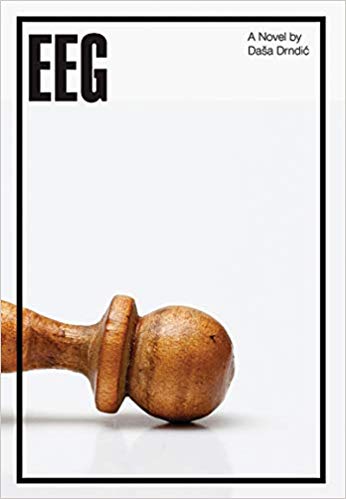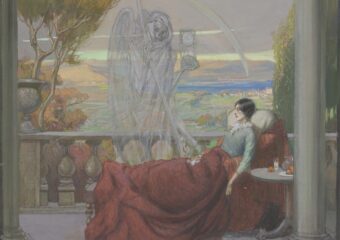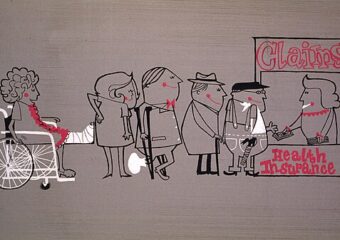From EEG by Daša Drndić, translated by Celia Hawkesworth, New York, New Directions, 2018.
The main character in this novel and the one before it (Belladonna), Andreas Ban, looks back over his life and details the many pains he experienced. Some of the pain was physical from cancer, spinal degeneration, and other chronic ailments. Some of the pain was psychic from searing losses (wife, mother), battles with health care institutions, banishments from jobs in academia and journalism, and memories of atrocities during World War II and the break up of Yugoslavia.
The following excerpt is a description Andreas Ban offers of a time when his mother, Marisa, was receiving experimental cancer treatment. The focus of this short excerpt is on bleeding from cancer or its treatment and the dehumanizing nature of experimentation in human subjects. We are pressed to think whether it is always the case that we have nothing to lose when near death and an experimental treatment is available.
Marisa is bleeding everywhere. Her blood soaks through the mattress and drips onto the polished floor of the Institut d’Oncologie, within the complex of the Paris Faculté de Médecine, or perhaps it does not happen within the complex of the Paris Faculté de Médecine at all, although there are indications that this is precisely where our mother is lying, because they are trying out new medicines, carrying out trials on her (our mother—a submissive half-dead rabbit, still beautiful—We’re experimenting, they say, we’ve got nothing to lose)…
pp. 260–261
When she bleeds, her mucous membrane falls away, Marisa is peeling in layers, from inside, disintegrating. I buy her shoes, but she can no longer walk.
In this excerpt, Andreas Ban describes his last moments with his mother, which remind us of the indomitable human spirit.
I have come back to Rovinj from some journey or other, it is winter, she lights the oil stove in the cellar and greets me with squid and chard and first-class Malvasia wine, bald, smiling and baked from cobalt radiation, You see see these little knots on my neck, she says, leaning her head to the right, they are metastases on the lungs…We sip cognac into the small hours, until early morning, I’d like to sing, she says, she tries, but it doesn’t work, a thin thread winds out of her throat, jerkily, cracked, she shrugs her shoulders, I think I see a tear, but there’s a smile on her lips that breaks my heart. In the hospital, when we came back from Paris, she had said, I’m seeing double, metastases on my brain, peripheral collapse, call Dr. Škokljev to give me an injection of dexamethasone, and she died in my arms half an hour later.
p. 267



